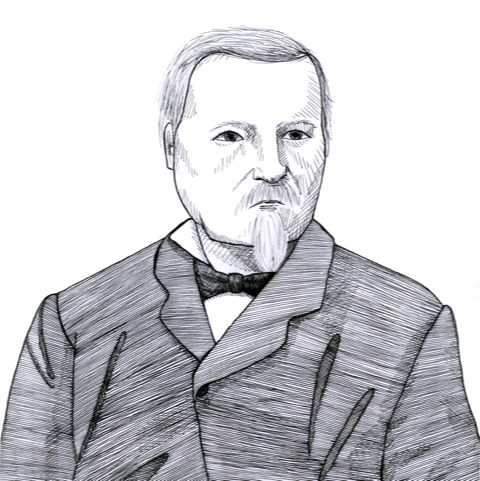
Molinari defends the right to property against the socialists who want to overthrow it, and the conservatives who defend it poorly (1849)
Found in: Les Soirées de la Rue Saint-Lazare (1849)
In the second year of the 1848 Revolution the French political economist Gustave de Molinari (1819-1912) wrote a defence of the right to property in the form of conversations between an Economist (him), a Socialist, and a Conservative. He argues that the Socialists want to overthrow the right to property without understanding what this will do to both justice and prosperity, and that Conservatives do not know how to defend property correctly:
Property Rights
Society, according to the Economists of the eighteenth century, is organized on the basis of natural laws, whose essence is Justice and Utility. When these laws are misunderstood, society suffers. When they are fully respected, society enjoys the greatest possible abundance and justice reigns in human relations.
Are these laws of providence respected or unrecognized today? Do the sufferings of the masses have their origin in the economic laws which govern society or in the obstacles placed in the way of their beneficent operation? Such is the question which recent events have raised for us.
To this question the Socialist schools reply, sometimes by denying that the economic world is governed, as is the physical world, by natural laws, and at other times by the affirmation that these laws are imperfect or vicious, and that the ills of society stem from this imperfect or vicious character.
The more timid claim that we must modify these laws; the more intrepid claim we should totally eliminate what are radically imperfect arrangements and replace them with new ones.